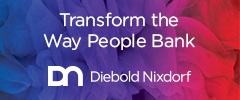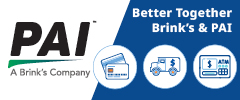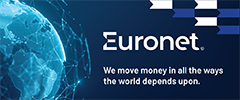
Harvard is right – Avoid the “science project”
Tuesday, April 13, 2021
View ShowroomI recently read a Harvard Business Review article by Graham Kenny titled: “Data is Great – But It’s Not a Replacement for Talking to Customers.” Graham espouses, “the ability to gather and process intimate, granular detail on a mass scale promises to uncover unimaginable relationships within a market.” But does the “detail” actually equate to “insight”? He then goes on to provide some interesting points on retail banking, grocery, and wealth management and how they hide behind data. He explains that listening to clients and customers is still key. Many of his examples are science projects.
In the article, Graham articulates examples to support his hypothesis and they all come down to one simple thing: the business use case and avoiding the science project. I agree if an organization does not consider the user that effort is a science project.
So how do you get the most from your data and avoid that tendency to do a science project? Here are five things you can use to make data science successful:
- Measure success: All good analytical use cases, such as payment card defection, have financial impact goals and outcomes. If your use case cannot articulate revenue gains or cost avoidance and you cannot measure those metrics, don’t perform the use case.
- Data is critical: Sampling was done years ago because compute power at scale was not available. The technology did not exist. Today we do not have to sample thus we can avoid the risk of sampling. Use as much data across as many channels as possible to execute your analytical use case.
- Look at all clients: Don’t just focus on your high value customers in your use case. If you do, you are missing the opportunity to impact 90% plus of your opportunity base. Also, what is important to your most highly valued clients may not be to the rest.
- Keep it real: When defining a use case make sure that operationalization is possible. That means that the people operating your business can use the analytic insights to take actions on the analytics. The business will also need to ensure there is time to execute those actions.
- Action in the last mile: Do not trumpet the victory of the data science. Trumpet the victory of your business users knowing how to use data science insights. Don’t give them a statistic, give the business user an action!
Data is not the way to communicate with your clients. Instead, it should help you have better conversations with your clients. Henry Ford put it perfectly: “If I had asked people what they wanted; they would have said faster horses.” The question Ford’s quote often generates is whether the innovation for a few, matters more than the scale of customer feedback. But is there really a debate? I would say no. Highly profitable innovation requires a market of people who are willing to spend assets to acquire. Data science and insights are no different. Innovation without a market is a science project!
John Thuma | Data Solutions Group FIS
Additional Resources from FIS
- 4/18/2024 - FIS Named as One of the Most Trustworthy Companies in America for Second Consecutive Year
- 3/27/2024 - FIS Recognized as a Digital World-Class Vendor by the Hackett Group
- 3/18/2024 - FIS Offers Greater Card Fraud Detection through New Artificial Intelligence Collaboration
- 3/5/2024 - FIS Announces Upsizing and Results of its Senior Note Tender Offers
- 3/5/2024 - FIS Invites the Next Generation of Banking and Payments Innovators to Apply for its 2024 Accelerator Program
- Show All FIS Press Releases / Blog Posts



























